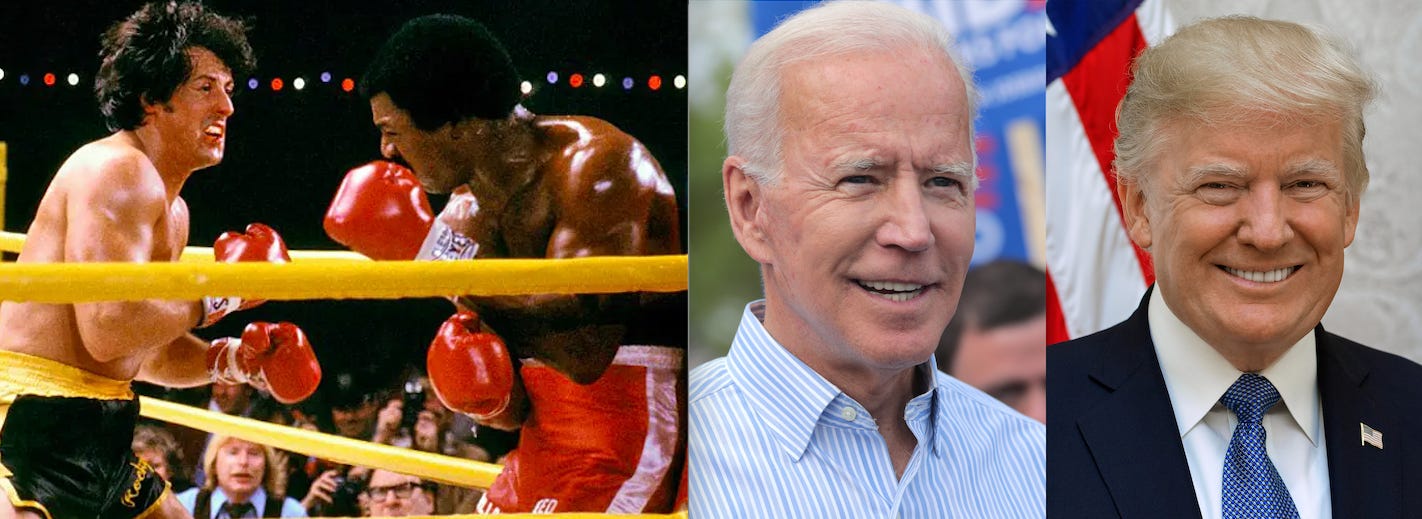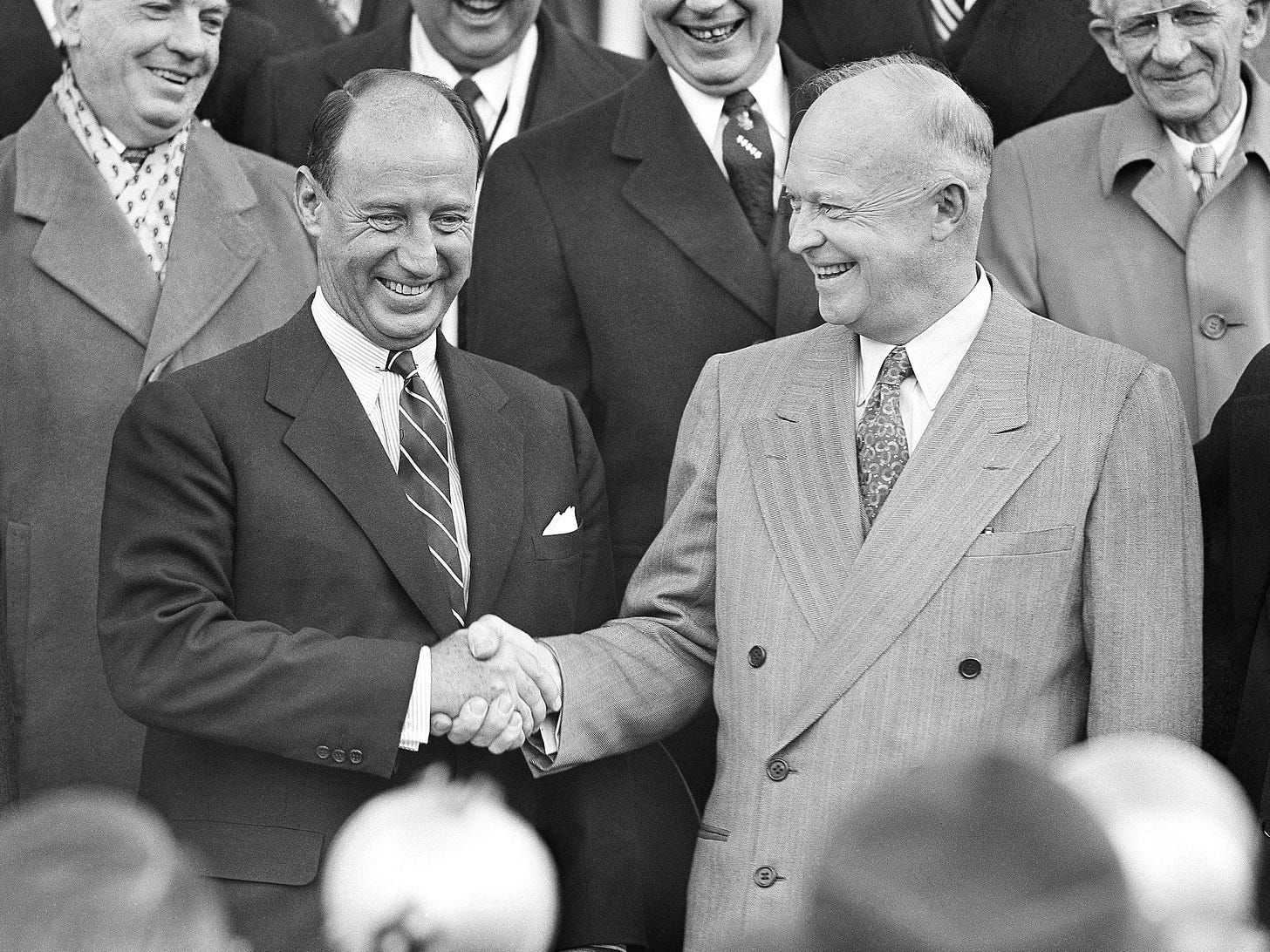I’ve noted previously that there’s an unusual amount of uncertainty in the 2024 presidential nomination cycle, and we shouldn’t be too confident about who next year’s nominees will be. But it’s not crazy to think that we’re heading for a Biden-Trump rematch — the first presidential rematch since 1956. What do we know about political rematches? Should we expect a different outcome than 2020?
A key thing to note about presidential rematches is that they’re pretty rare. There’s been only one in the past hundred years, and just six overall. But those can be instructive.
The 1956 one, of course, was between President Dwight Eisenhower and former Illinois Governor Adlai Stevenson. Ike had beaten Stevenson 55-44 in the popular vote in 1952. Four years later, Ike actually improved slightly on his previous performance for a 57-42 win. This shines a light on a few things. First, there is an incumbency effect, which has been detected in many different elections; incumbents tend to do a bit better than challengers. Second, fundamentals matter! The economy was a bit weak in 1952 and the Korean War was in full tilt — this hurt the Democrat Stevenson as the incumbent party’s candidate (Truman had declined to run). By 1956, the economy was stronger, the war was over, and Eisenhower benefited from that.
Other presidential elections are a bit trickier. Let’s just ignore the Adams/Jefferson contests of 1796 and 1800 and the Quincy Adams/Jackson contests of 1824 and 1828, since these were multi-candidate affairs without fully formed parties or much of a mass electorate. The Van Buren/Harrison contests of 1836 and 1840 are a borderline case, since there were four different Whig candidates running against Democrat Van Buren in the first one. Van Buren got just over half the popular vote. But an economic panic and a united opposition hurt Van Buren’s reelection campaign, and he only pulled 47% of the vote, losing to William Henry Harrison who, of course, went on to die in 30 days.
The Grover Cleveland / Benjamin Harrison matches of 1888 and 1892 are also a bit complicated, especially since Cleveland won the popular vote in both contests. Cleveland beat Harrison 49-48 in 1888, although the Electoral College put Harrison in the White House. Four years later, a Populist candidate took nearly 9% of the vote, but Cleveland improved his margin against the incumbent Harrison 46-43 and took office.
Finally we come to William McKinley’s double-defeat of William Jennings Bryan in 1896 and 1900. McKinley’s victory margin in the popular vote was roughly five percent both times, although he improved slightly by the second contest.
If we just look at the four rematches since the 1840s, we see pretty stable popular votes, with both a modest incumbency effect (usually) and some sensitivity to fundamentals like the economy and war.
Now, of course, there are congressional rematches all the time. This study by Split-Ticket found 46 congressional rematches between 2008 and 2020. And the lesson from those was that the Democratic candidate tended to do a bit better than the Republican did in the second match. As they report, “The median Democratic challenger saw an improvement of 0.5 points in margin in the rematch, while the median Republican challenger posted a 1.3 point decline.” They attribute this to the recruitment of somewhat higher quality Democratic candidates on average, a finding that has been detected in other studies.
Okay, so let’s add this up. If there’s a Biden-Trump rematch, we can probably expect Biden to benefit slightly from incumbency and from being a better overall general election candidate. However, as the incumbent, he’s also tied to the fundamentals, meaning a recession or a war would harm him and benefit Trump. Also, we probably shouldn’t expect a vastly different outcome from 2020.







You mean Illinois, not Iowa for Adlai.
Polls show the majority of people do not want Trump or Biden to run and yet both dominate their party polls. Both can end up winning with a minority if the majority is divided by a large number of candidates splitting the vote. Adlai ran against a national hero twice. Neither candidate comes close. There are better candidates.